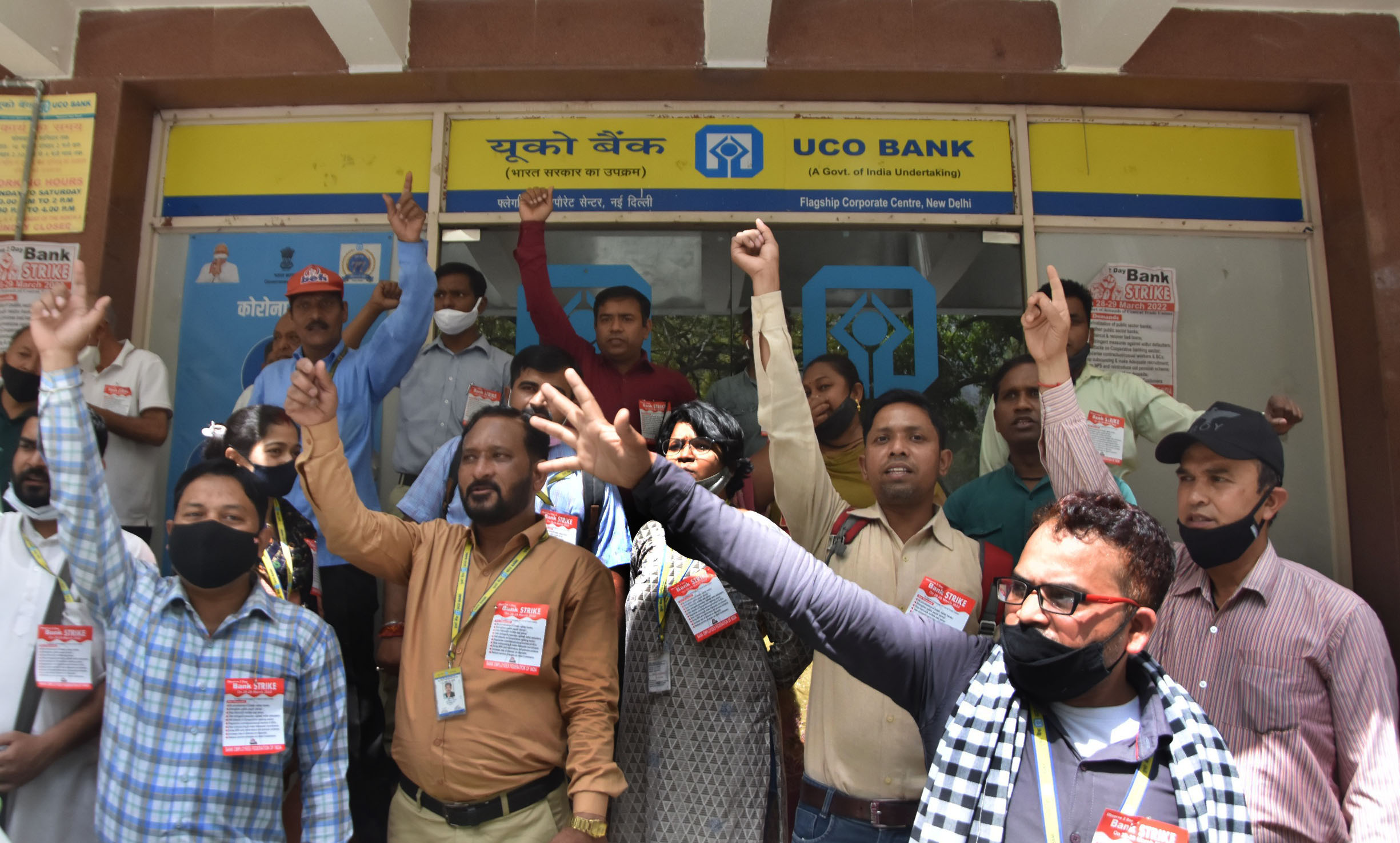Banking services were partially affected in the country in response to a nationwide strike called for today and tomorrow by the All India Bank Employees Association (AIBEA) to protest the privatisation of public sector banks.
Various banks had informed their customers about the disruption in services due to the strike.
The impact of the strike was partial but felt across the country. The strike would continue on Tuesday as well.
The banks worked with reduced staff as many of their employees did not report for duty. The call for the nationwide strike was supported by several central trade unions.
The AIBEA has a significant presence in most of the public sector banks, private banks, foreign banks, cooperative banks and regional rural banks that responded to the ‘Bharat bandh’ call.
The AIBEA got a supporting hand from the joint forum of central trade unions that gave a call for a nationwide strike, enhancing the scope of the strike. These unions were protesting against the government’s policies which, they felt, are not in the best interest of workers, farmers, and the people at large.
The impact of the strike could be witnessed across India. Many bank employees marched on the streets holding placards in various cities. Various trade unions and Left organisations held a demonstration against policies of the central government, including the privatisation of PSU banks.
Vijayawada saw the protesters marching on the streets. In Kerala, the impact of the strike was more pronounced. Roads wore a deserted look, and only a few private vehicles could be seen. The state transport was conspicuous by absence. It was a similar situation in West Bengal. The trade unions were on the streets protesting but the banks remained open.
The unions were demanding the scrapping of the proposed changes in labour laws. They protested against the privatization drive of the government of banks and other institutions. They are also demanding increased allocation of wages under MNREGA and regularization of contract workers.
The power ministry on Sunday had advised all the state-run utilities and other agencies to be on high alert and ensure round-the-clock electricity supply.
